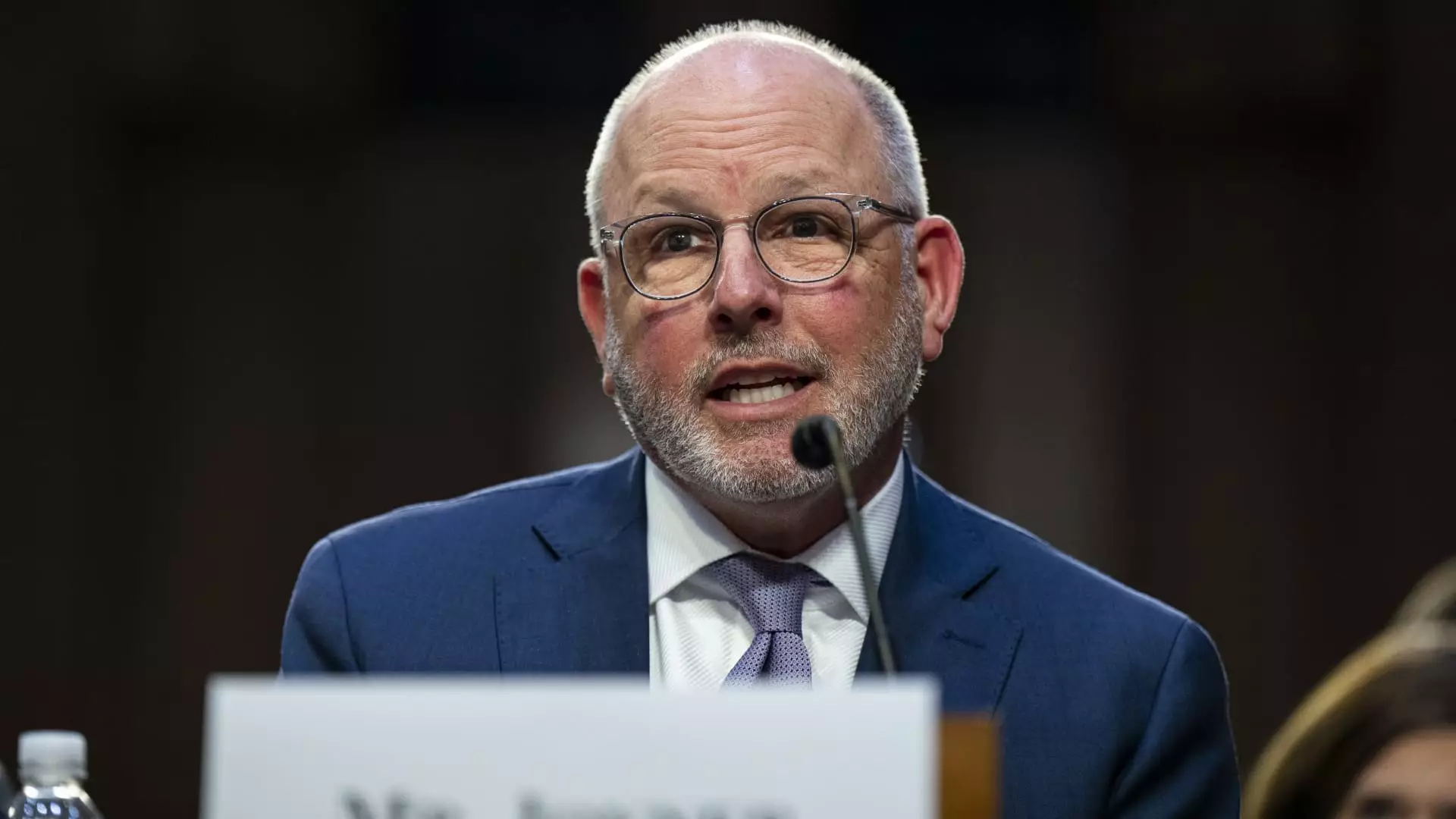In a notable strategic shift, CVS Health has appointed David Joyner as its new Chief Executive Officer, succeeding Karen Lynch. This leadership change comes amid ongoing difficulties for the company, as CVS seeks to bolster both its profitability and stock performance. The news broke on a Friday, but Joyner officially took the reins the previous Thursday. The timing was critical, given that CVS shares have witnessed a nearly 20% decline this year, compounded by an 11% drop in pre-market trading following the announcement. Such a performance may signal a need for rejuvenation at the top tier of management.
The healthcare sector in general has felt the strain of rising costs and changing consumer behaviors. CVS, which operates both an insurance division through its Aetna unit and a retail pharmacy business, has found itself particularly pressured. Softening consumer spending and challenging reimbursement conditions for prescription drugs have added to the company’s trials. The situation compelled CVS to issue a lowered profit forecast for the third consecutive quarter in August, indicating a desperate measure to stabilize its financial expectations.
In the latest corporate dispatch, CVS forecasted adjusted earnings in the range of $1.05 to $1.10 per share for the third quarter. They also expressed concerns about medical expenses being higher than initially estimated. The company’s acknowledgment of “elevated medical cost pressures” indicates that stakeholders should be wary of over-relying on previous profit guidance. The third-quarter earnings report is set for November 6, and analysts will keenly scrutinize these figures, especially in the context of CVS’ evolving strategies.
The pressure isn’t just coming from within; external factors contribute significantly to CVS’ ongoing challenges. Notably, Glenview Capital, one of CVS’s prominent shareholders, has intensified calls for operational changes. The landscape has compelled CVS’s board to engage strategic advisors to evaluate whether to sever ties between its insurance and retail divisions—a consideration that could redefine CVS’s operational framework for years to come.
David Joyner brings an extensive background in pharmacy services, having previously led the Caremark division of CVS Health. His return to the company last year follows a brief retirement, indicating a strong commitment to reinvigorate CVS amidst mounting challenges. Joyner’s career has included significant stints at Aetna and Caremark, which serve as a foundation for his understanding of the complex healthcare landscape.
In his statement, Joyner expressed a dedication to advancing CVS’s mission, noting, “I came back to CVS Health in 2023 because I believed I could give more to the company, and I take this opportunity today for the same reason.” His appointment, however, does not exempt him from the scrutiny and challenges his predecessor faced, particularly regarding the company’s substantial insurance operations, which have experienced climbing medical costs amid the post-Covid healthcare landscape.
As Joyner steps into this pivotal role, he must navigate not just internal organizational challenges but also broader regulatory pressures. The Biden administration and lawmakers are intensifying their scrutiny of pharmaceutical benefits managers (PBMs), including Caremark. Recent lawsuits from the Federal Trade Commission allege that large PBMs engage in practices that inflate medication prices, consequently impacting patient affordability. Such scrutiny could force CVS to adopt more transparent and equitable practices that satisfy both regulatory bodies and consumers.
On the insurance side, CVS is facing heightened medical costs, particularly in its Medicare Advantage segment. As more seniors return to necessary healthcare following pandemic-related delays, the financial implications for CVS have grown pronounced. Current projections suggest a medical benefit ratio—a measure of total medical expenses relative to premiums—around 95.2% for the quarter, a significant uptick from 85.7% compared to the same period the previous year. Higher ratios typically pose challenges to overall profitability, placing additional pressure on Joyner to implement operational efficiencies.
David Joyner’s ascent to CEO comes at a time of significant transition for CVS Health. Balancing fiscal reality with strategic foresight will be critical as he navigates a multifaceted landscape marked by rising medical costs and growing external scrutiny. The prospect of restructuring within CVS—whether through operational cuts or divesting certain units—remains an open question. Stakeholders will be closely monitoring how Joyner’s extensive experience in pharmacy benefits will be leveraged to stabilize the company and restore investor confidence while ensuring that CVS remains aligned with the evolving healthcare landscape. The road ahead is fraught with challenges, but it also presents an opportunity for significant transformation within CVS Health.


Leave a Reply